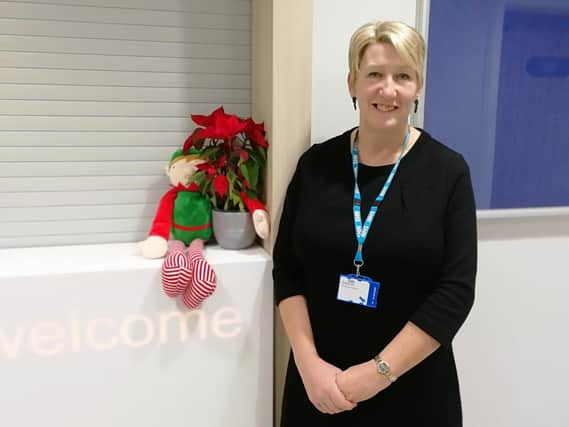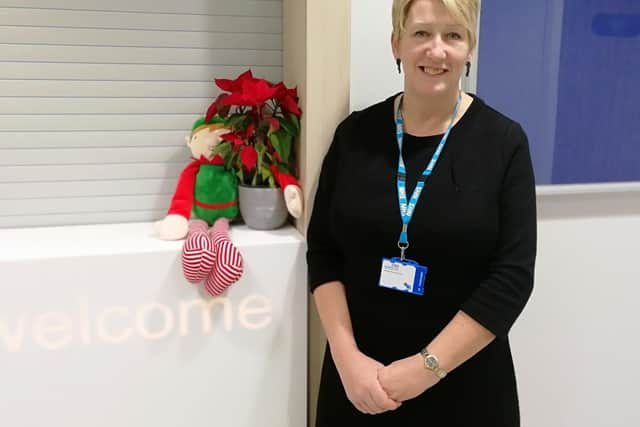Mental health care for mums moves closer to home


The Ribblemere centre opened at Chorley Hospital in November, creating eight new inpatient beds to provide treatment for those suffering from the most severe perinatal mental health problems.
The facility serves the whole of Lancashire and South Cumbria and has so far helped ten patients, but now staff have begun working with mums closer to home. It is part of a plan to spot the early signs and risks of maternity-related mental illness and ward it off before it worsens.
Advertisement
Hide AdAdvertisement
Hide AdGill Strachan, a consultant psychiatrist at the unit, says that the nature of some conditions means mums may be unaware that they are becoming unwell.


“First of all we’ve got to detect [a problem], so we’re relying on the wider health community to ask the right questions and make a referral to mental health services [if necessary],” she explains.
“A lot of what we call post-natal depression might actually have started in pregnancy. Women might have become more anxious or depressed, but they might not have been keen to talk about it because there is a perception that you should be happy when you're pregnant.”
But the biggest risks to a new mum’s mental health come in the first six weeks after her baby has been born. Some of the symptoms might be most obvious to her close family, while others could remain dangerously hidden.
Advertisement
Hide AdAdvertisement
Hide Ad“Warning signs include feeling that they’re not competent as a mum or that other people would be better looking after their baby,” Gill says.
“They may believe that their baby doesn’t like them or might feel like running away - or even have thoughts of ending their life.”
But help for the estimated one in five new mums to suffer from mental health problems will now also be delivered in the community - both to treat those with less severe complaints and also attempt to prevent some the most serious mental health conditions which a new mum could face.
Women with pre-existing mental health conditions like bipolar disorder are known to be at particular risk of a condition called postpartum psychosis. That can result in hallucinations or a belief that their baby does not belong to them.
Advertisement
Hide AdAdvertisement
Hide AdHowever, a birth plan, delivered by specialist staff during pregnancy, can help ensure that a new mum’s condition does not deteriorate to the point of requiring admission to Ribblemere.
Gill says that the new unit - operated by Lancashire Care NHS Foundation Trust - is filling a gap in both inpatient and community services. Previously, patients would have had to travel to Manchester or Leeds to be taken into hospital for treatment.
“We can admit women here who are really very unwell - and they get better with medicine and other therapies.
“We also have nursery nurses on the wards who can help look after baby, but baby will have already recognised Mum’s smell and the sound of her voice - so just being able to be in each other's presence helps them both.
Advertisement
Hide AdAdvertisement
Hide Ad“And then, as Mum gets better, she’ll be able to do more of the looking after of her baby,” Gill adds.
BABY BLUES
Becoming a mum, partiuclarly for the first time, can take its toll - but that does not necessarily mean that a mntal health problem s developing.
"It’s a time of adjustmen and we know that up to 70 percent of women experience what we call baby blues," consultant physchiatrst Gill Strachan explains.
"They may be feeling tearful, not settling and finding it a struggle - but we know that it only lasts for up to 72 hours and only for first 14 days after birth.
Advertisement
Hide AdAdvertisement
Hide Ad"If it’s lasting longer than that, there may be other things going on - if a women’s appetite is affected or she is feeling guilty or getting any thoughts that people would be better off without her, then these women should be getting help from their their GP and then from perinatal mental health services," Gill advises.